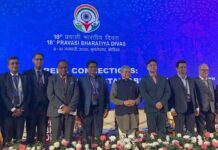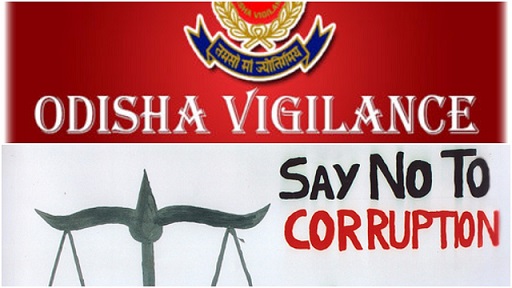By Our Correspondent
NEW DELHI/BHUBANESWAR: The Central Vigilance Commission observes the Vigilance Awareness Week from 27th October to 2nd November, 2020. This is observed every year during the week in which the birthday of Sardar Vallabhbhai Patel (31st October) falls. This awareness week campaign affirms our commitment to promotion of integrity and probity in public life through citizen participation.
In 2020, the Vigilance Awareness Week is being observed from 27th October to 2nd November, 2020 with the theme, “सतर्क भारत, समृद्ध भारत – Satark Bharat, Samriddh Bharat (Vigilant India, Prosperous India)”. This theme was finalized after putting the suggestive themes on the website and obtaining the opinion of Chief Vigilance Officers on the proposed theme for the year.
Central Bureau of Investigation is hosting a National Conference on Vigilance and Anti-Corruption (27th – 29th October, 2020) which will be addressed by Prime Minister Shri Narendra Modi on 27.10.2020 at 5 p.m. during the Vigilance Awareness Week which will be webcast live and all organizations / departments of Central Government may watch the live webcast.
All Organizations have been advised to strictly adhere to extant Covid-19 prevention guidelines such as wearing masks, ‘Do Gaj ki Doori’ and washing one’s hands at all locations and events. In addition, all Organisations have been directed to strictly adhere to the economy measures issued by the Ministry of Finance vide the Department of Expenditure OM No. 7(2)E. Coord/2020 dated 4.9.2020.
The Commission believes that corruption is a major hindrance to the progress of the nation. All sections of society need to be vigilant in order to uphold integrity in all aspects of our national life. The Commission desires that all organisations focus on internal (housekeeping) activities which are to be taken up in campaign mode as part of the Vigilance Awareness Week this year. This includes improvement of internal processes, time bound disposal of work and systemic improvements leveraging technology. Commission emphasises making all processes transparent including payment to outsourced workers, house allotments, updation and digitization of assets including land records, condemnation of old furniture and weeding out old records following prescribed procedures/ extant rules .
Organisations have been advised to identify and implement systemic improvements within their organisations. They may then upload them on their organisation’s website in the public domain. This may be sent to the CVC in order to ensure wider dissemination of the systemic improvements and good governance measures.
Preventive Vigilance module has been included in the training curriculum for foundation training course of probationary officers of Banks and some other cadres such as scientists. The Mid- Career Training Programme for middle level officers of the organised Group A services under various Ministries of the Government of India also includes a module on Preventive Vigilance. Visit to Institutes of Excellence, village visit etc. have been added to modulate the behaviour of government officials towards integrity and transparency and to bring about attitudinal change.
All employees are requested to take the Integrity Pledge circulated by the Commission. All persons with whom the organization deals with such as vendors, suppliers, contractors, etc. are also requested to take the pledge. The Commission has requested all Central Government Ministries / Organizations to conduct activities relevant to the theme both within their organization, and outreach activities for public/citizens:
Use organizational website for dissemination of employees/ customer oriented information and to make available avenues for redressal of grievances.Organisations to conduct various outreach activities for dissemination of anti-corruption message and stressing the necessity of vigilant India as essential for a prosperous India. Online modes to be extensively used.Extensive use of social media platforms, bulk SMS/E-mail, Whatsapp, electronic and print media etc. for spreading awareness.



























